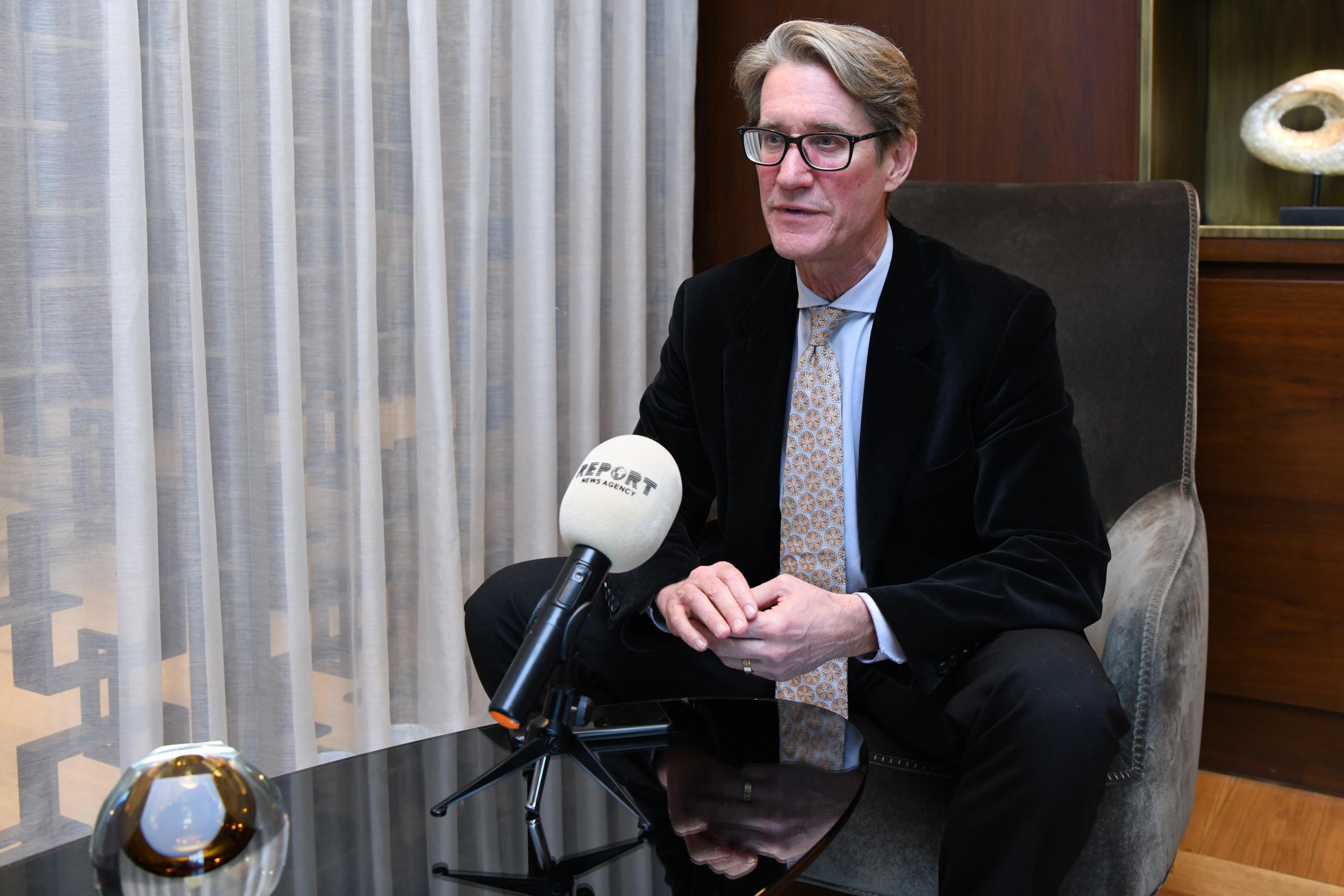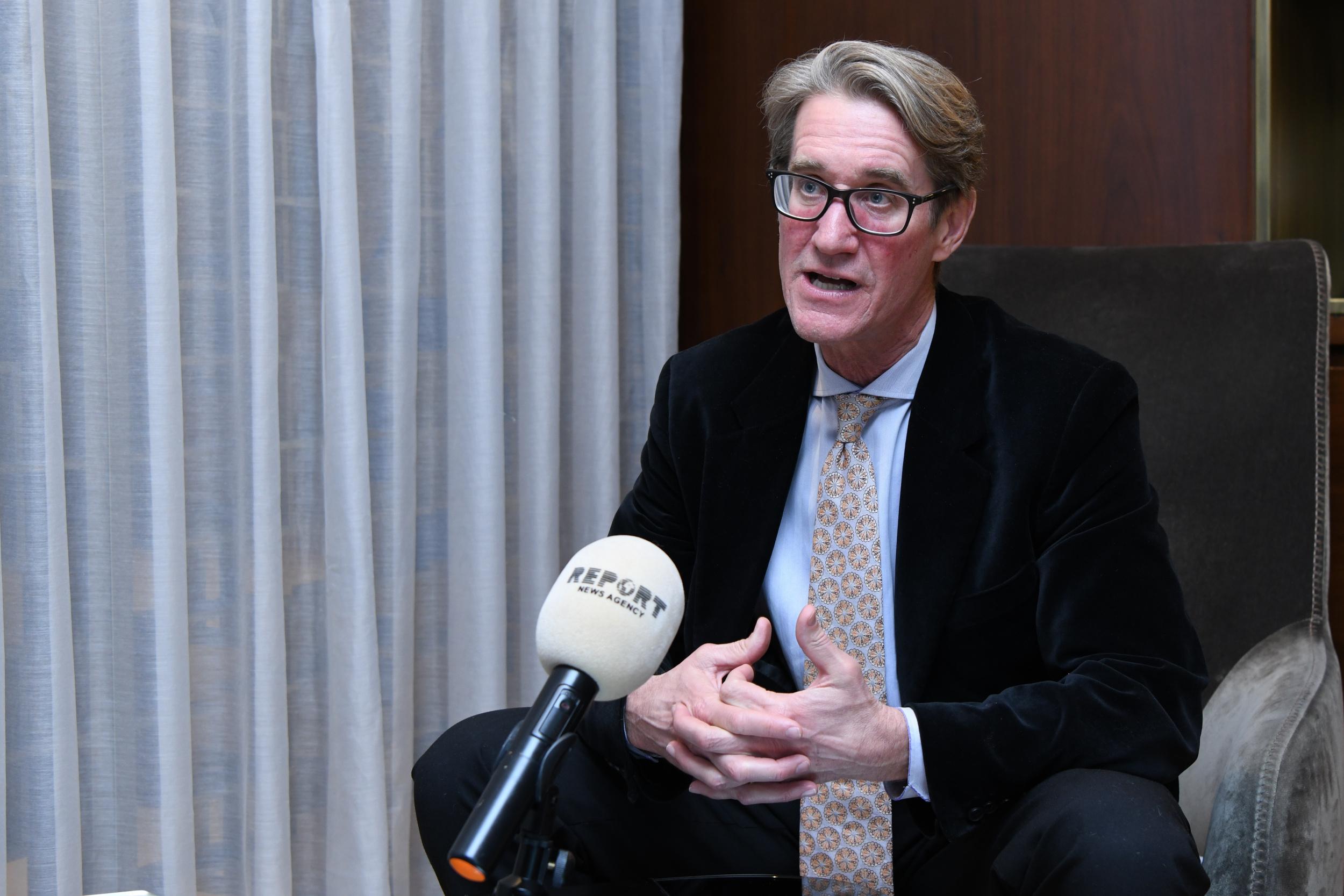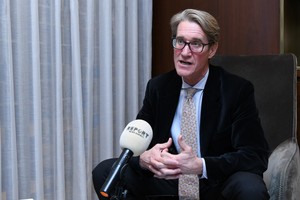2023 marks the 100th anniversary of the national leader of Azerbaijan Heydar Aliyev.
The signing of the Contract of the Century, the construction of the main export pipeline Baku-Tbilisi-Ceyhan, the attraction of a significant amount of foreign investment is only a small list of what Heydar Aliyev achieved.
Matthew Bryza, an international expert, board member of the Jamestown Foundation and former US Ambassador to Azerbaijan, shared his impressions and memories of the national leader of the Azerbaijani people with Report.
As a former Special Advisor to the President and Secretary of State on Caspian Basin Energy Diplomacy who coordinated the US Government’s inter-agency effort to develop a network of oil and gas pipelines in the Caspian region, you have known ex-president of Azerbaijan Heydar Aliyev. What are your memories of working with him?
I have wonderful memories of working with President Heydar Aliyev. Our first meeting was in quite an informal setting, at the presidential guest residence in Baku. I was impressed by the simple manner of communication of President Heydar Aliyev, while at the same time I noticed a mischievous and warm energy in his eyes that indicated he enjoyed entertaining his guests. He was eager to bring us to the lower level of the building to share tea and coffee and show us the amazing grotto he had built decades ago, reportedly for a visit by then Soviet-leader Brezhnev. It was an amazing cave, but indoors.
My most powerful memory is of a meeting in January of 2001 just after we had the controversial presidential elections in the US when former Vice President Gore won the most popular votes but George W. Bush was nevertheless declared the winner.
President Aliyev said “We’re here to talk about the Caspian Sea issues, but I know that as always you’re also going to ask me about the democracy in Azerbaijan, so let me ask you about democracy in your country. Do I understand this correctly: You have just had an election, and the man who won the most votes was not declared the president? While the man who is declared the president is the son of a former president, who was also the head of the US version of KGB. Is that correct? And the election was finalized by a legal case in the US state that is run by the brother of the man who was declared the winner? Hmmmm, ok, so, now tell me about Azerbaijan’s democracy”.
This was a deeply astute observation, which reflected who Heydar Aliyev was: deeply analytical, observing the reactions of the people around him all the time, highly intelligent, and always ready to challenge prevailing views.

These personality traits were evident in many other ways. It was he who, after deep analysis and observation of world events, had the vision of the Contract of the Century to resurrect Azerbaijan’s oil and gas industry through private investment from international oil companies and then to develop the export pipelines.
And this was so clear and strongly held by President Aliyev that he persuaded us in the international community that these projects would happen, and long before they actually did. So, in the end, we were eager to all work together to realize these projects.
It’s known that Heydar Aliyev paid special attention to the development of oil and gas connections in the country. How do you see his role in implementing Azerbaijan's global energy projects, such as the Contract of the Century, and the Baku-Tbilisi-Ceyhan pipeline?
Without the Baku-Tbilisi-Ceyhan oil pipeline and South Caucasus natural gas pipeline, Azerbaijan would have never gotten to where it is now. Those pipelines changed everything for Azerbaijan, and not only from the economic perspective. They connected Azerbaijan not only to Georgia and Türkiye but also to the Transatlantic community, meaning the US as well, in a political sense. And this is how Azerbaijan secured its independence and remained stable and secure, which ultimately enabled it to liberate its territories in 2020.
Indeed, it was possible that Azerbaijan’s oil and gas business would have never recovered after the collapse of the USSR. Heydar Aliyev’s vision made it possible for Azerbaijan to resurrect its energy sector as I mentioned earlier and ultimately export its oil gas through these pipelines. His vision also included attracting foreign investment in a geopolitically balanced way to prevent Azerbaijan from becoming anyone’s enemy. This meant securing investment from companies based in the UK, Türkiye and Japan but also from Russian and even Iranian companies at the time.

He realized that there was not enough money in Azerbaijan to revive the country’s energy sector, so he arranged the Contract of the Century which brought in companies from different countries who then provided money for this and ultimately built the pipelines.
How were the US-Azerbaijan ties developing during his presidency? Were US companies involved in the Azerbaijani market?
The US played a decisive role in the development of these energy projects. Without US help, these projects never would have happened, as President Ilham Aliyev often says. There needed to be someone to organize all the countries and companies. The EU wasn’t ready to do it; they didn’t even support the Southern Gas Corridor until around 2007. I spent a lot of time in Brussels, Berlin, Paris, and Sofia trying to persuade our EU partners that the Southern Corridor was in their own interest so they could rely also on gas from Azerbaijan rather than so much gas from Russia.
As for private US energy companies, they were not producing any oil or natural gas in Azerbaijani at the time and therefore had no impact on the US Government’s policy to support these pipelines. Some US oil companies even opposed Baku-Tbillisi-Ceyhan, arguing that the US Government had no right to interfere with private business decisions. But the US Government saw a geostrategic needs for these projects, which were, to secure the sovereignty and independence of Azerbaijan, to ensure the free flow of hydrocarbons to the market via commercially viable investments, and to reduce Russia’s ability to use supplies of oil and natural gas to manipulate our European Allies.

And we in the US Government understood that these projects would be commercially viable. And we were right. It turned out that for example that for BP, the Azeri-Chirag-Guneshli oil fields together with the Baku-Tbilisi-Ceyhan oil pipeline became one of the company’s two most profitable investments in the world at the time, the other being offshore Angola.
Azerbaijan became the most developed country in the region, especially after the fall of USSR…
The only way that today’s level of economic development in Azerbaijan could have been achieved was by resurrecting the country’s oil and gas industry. Fundamentally, Azerbaijan had been an agrarian society with a century or so of oil production that then collapsed along with the Soviet Union. It was Heydar Aliyev’s vision to renew Azerbaijan’s energy sector and make it a key player in the energy market. He took very courageous decisions, and his plan worked.
Today, President Ilham Aliyev also deserves huge credit for reforming SOCAR and other state-owned enterprises and attracting more and more investments. Private companies today in Azerbaijan are indeed becoming competitive on the world stage.

I have been coming and going to Azerbaijan since August 1997. Back then the road from the airport to the city was just 2 lanes, and not a 6-lane highway like today. When you exited the airport, there was a traffic light where you turned left and headed down what seemed like a country road to the city. And due to severe electricity shortages then, there was no light along the road…other than in one spot: the natural gas flare burning off waste gas at the SOCAR refinery. Now, in contrast, that modern highway is lit up by bright lights powered by electricity that is produced by burning rather than wasting that natural gas.
And today, Azerbaijan is moving into a new phase with massive investment in solar and wind power to generate electricity and allow more natural gas to be exported to Europe, which will generate much more income for the country.









 https://images.report.az/photo/84156ab5-cbe9-37f7-8ada-fa976c2de990.jpg
https://images.report.az/photo/84156ab5-cbe9-37f7-8ada-fa976c2de990.jpg

